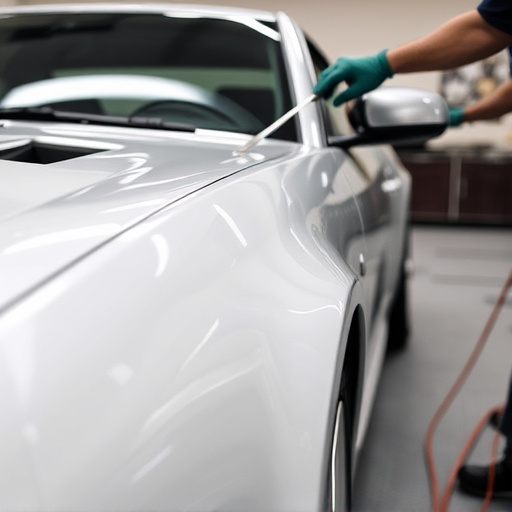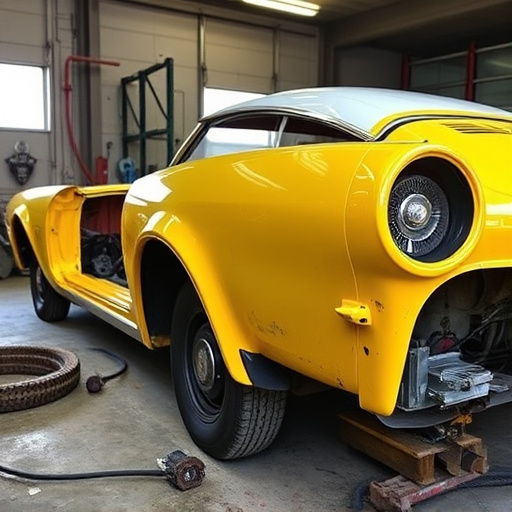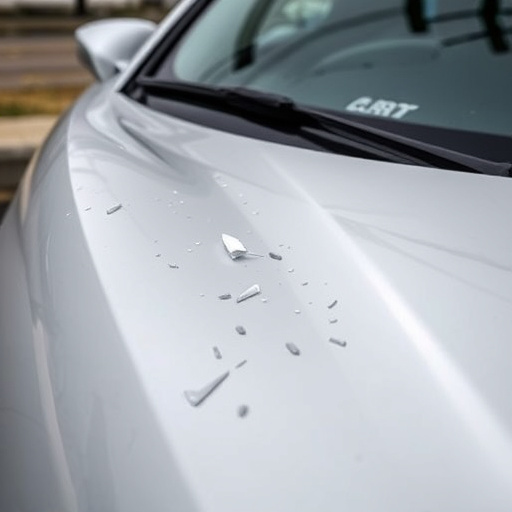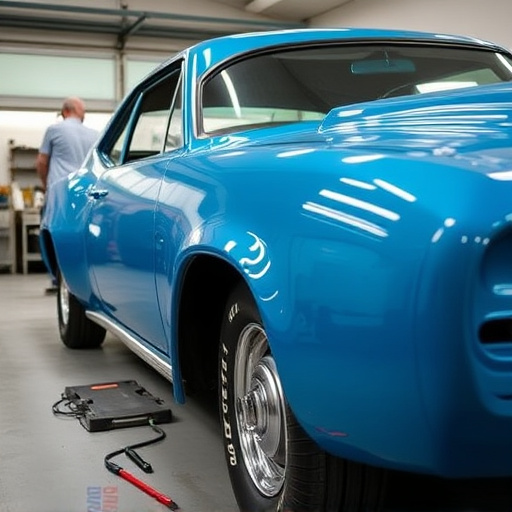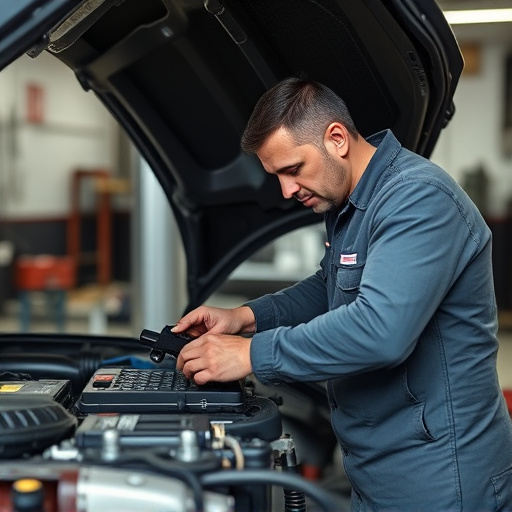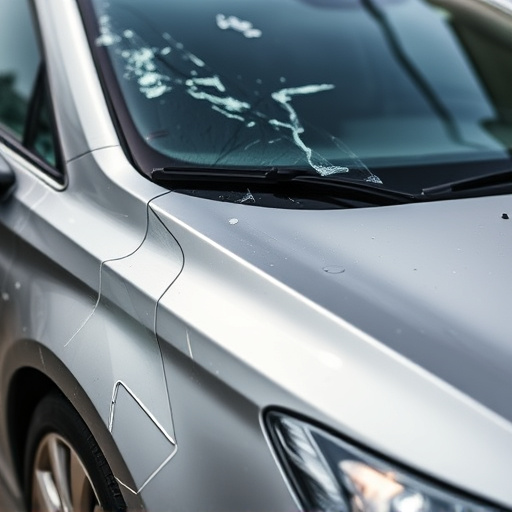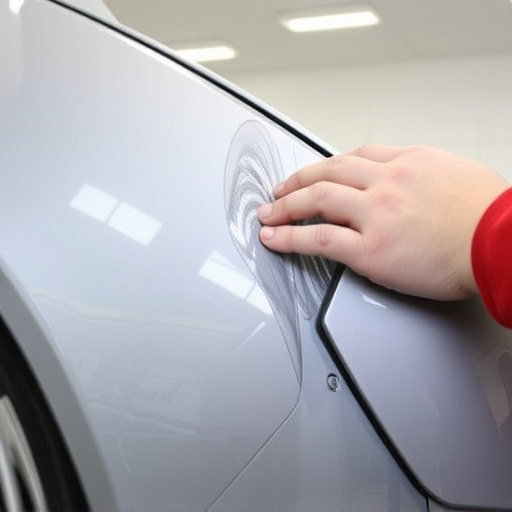Mercedes aluminum repair requires mastering thermal and structural testing to preserve vehicle integrity and aesthetic appeal, ensuring repairs meet stringent standards for quality and safety. Thermal testing detects weaknesses, validating component strength and integration, while specialized care maintains modern aluminum alloys' strength and performance, from simple dent removal to complex restoration.
Mercedes aluminum repair is a specialized process demanding meticulous attention to detail. As luxury vehicles continue to evolve, understanding the intricacies of aluminum repair becomes paramount for both manufacturers and technicians. This article delves into the critical components of Mercedes aluminum repair, focusing on thermal and structural testing. By exploring these essential processes, we uncover the secrets behind ensuring quality, safety, and superior performance in every repair.
- Understanding Mercedes Aluminum Repair Processes
- The Role of Thermal Testing in Quality Assurance
- Structural Integrity: Ensuring Safety and Performance
Understanding Mercedes Aluminum Repair Processes

Understanding Mercedes Aluminum Repair Processes involves grasping both thermal and structural testing methodologies. These tests are critical in ensuring that any repairs made to a Mercedes’ aluminum body are not just cosmetically sound but also structurally integral. Thermal testing checks for metal integrity by evaluating how the aluminum responds to heat, crucial for luxury vehicle repair where temperature extremes can impact material strength. Structural integrity is equally important; it involves assessing the overall stability and alignment of the vehicle body, key aspects of collision repair services for any car, not just Mercedes.
Mercedes aluminum repair processes are meticulously designed to preserve the vehicle’s original quality and aesthetics. Skilled technicians use specialized equipment to perform these tests, ensuring that each repair adheres to stringent standards. This meticulous approach guarantees that when a luxury vehicle undergoes aluminum body repair, it regains its structural soundness and retains its distinctive style, making it a reliable choice for those seeking top-tier collision repair services.
The Role of Thermal Testing in Quality Assurance

In the intricate process of Mercedes aluminum repair, thermal testing plays a pivotal role in ensuring quality assurance. This essential step involves evaluating the thermal properties of the materials used, particularly crucial for aluminum due to its sensitivity to heat and temperature fluctuations. By subjecting repaired components to precise thermal cycles, technicians can detect any weaknesses or discrepancies that might go unnoticed during visual inspections. Thermal testing helps identify potential issues such as structural fatigue, corrosion, or improper bonding, ensuring that every part meets the stringent standards required for luxury vehicles like Mercedes.
Moreover, thermal testing is instrumental in validating the integrity of the repair process itself. In the event of a fender bender or car scratch repair, it guarantees that the aluminum panel has been seamlessly integrated into the vehicle’s structure without compromising its overall strength and durability. This meticulous approach not only enhances the safety of the vehicle but also ensures that owners receive top-tier craftsmanship when visiting an auto body shop for Mercedes aluminum repair.
Structural Integrity: Ensuring Safety and Performance

Mercedes aluminum repair goes beyond mere aesthetics; it’s a meticulous process ensuring the structural integrity of the vehicle. Aluminum, known for its lightweight yet durable nature, requires specialized care to maintain its strength and performance. Every panel, from fenders to doors, must be precisely assessed to guarantee it can withstand the rigors of everyday driving. This is especially crucial in modern cars where advanced aluminum alloys are used to enhance fuel efficiency and overall vehicle dynamics.
Proper thermal testing and structural integrity checks are vital steps in Mercedes aluminum repair. Thermal manipulation can affect the metal’s properties, so specialized equipment is employed to ensure the right temperature during the repair process. Structural testing goes hand in hand with this, confirming that any repairs or replacements maintain the car’s safety standards and performance capabilities, be it for preventing a simple car dent removal or addressing complex automotive restoration needs.
Mercedes aluminum repair processes demand meticulous attention to detail, particularly through thermal and structural testing. These non-destructive evaluation methods are crucial for maintaining both the quality and safety of repairs, ensuring that each component meets stringent performance standards. By integrating these tests into the repair process, specialists can preserve the structural integrity of Mercedes vehicles, guaranteeing their continued reliability on the road.
